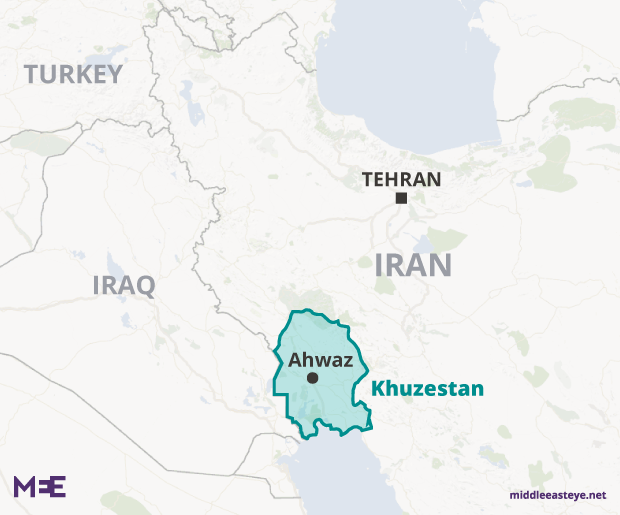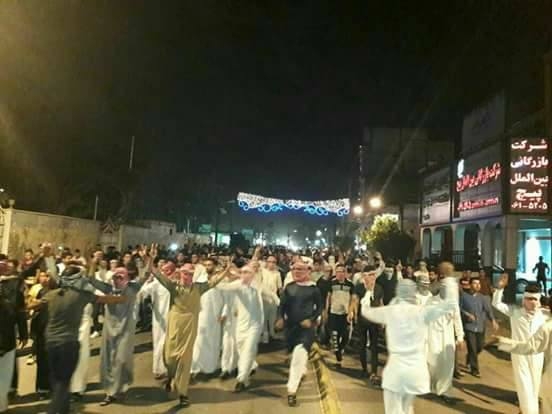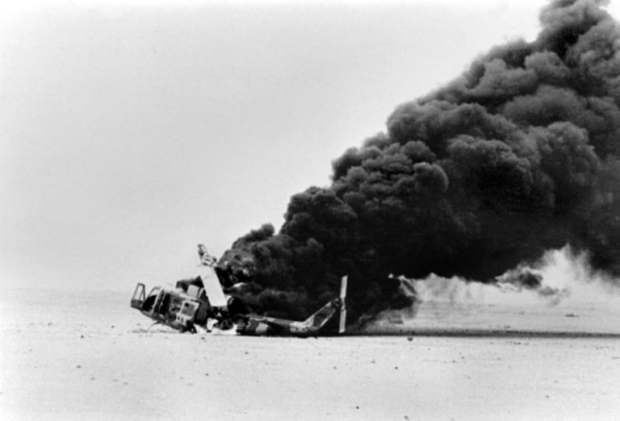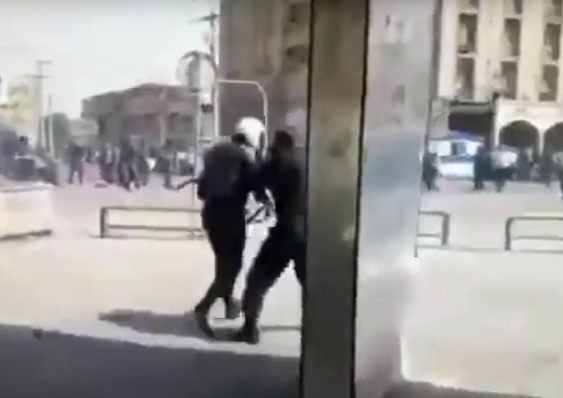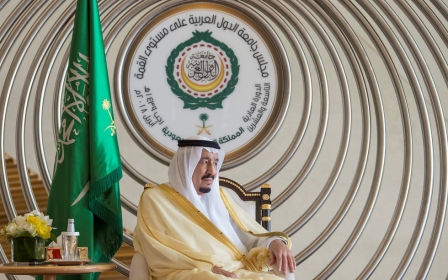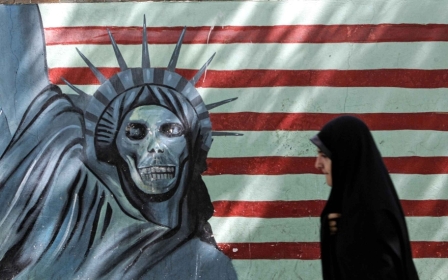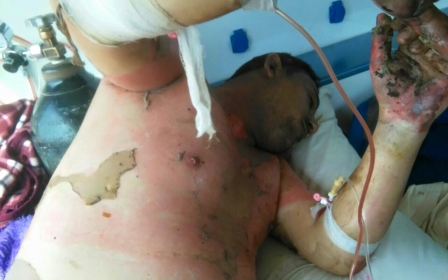'Ahwazis don't give up': Anniversary of annexed Arab province looms in Iran
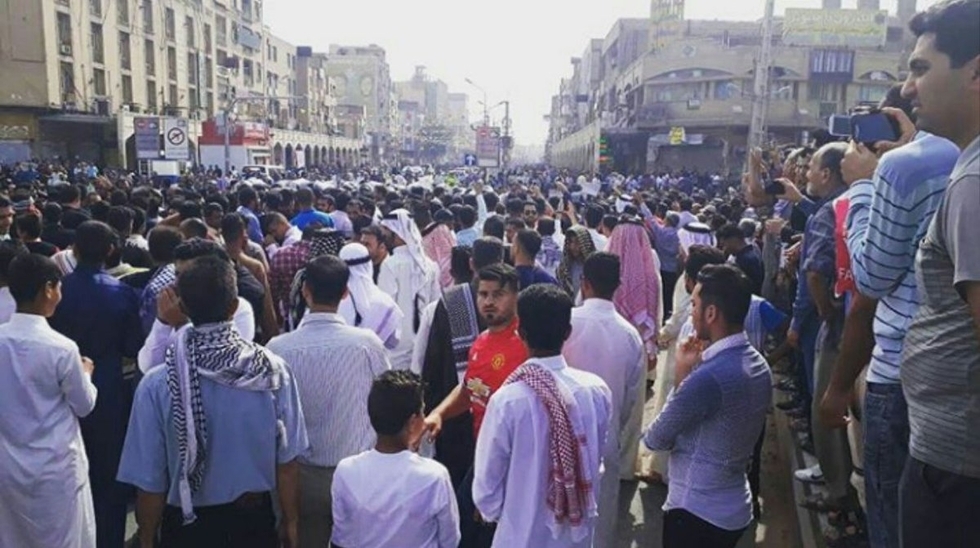
Protests are expected in the coming days as Iranians in the country’s Arab-majority province mark the anniversary of the end of self-rule in their region nearly 100 years ago this week.
Coming just weeks after at least 200 activists were arrested in widespread protests in the southwestern border province, analysts say the tinder box of Khuzestan could be headed for an explosion.
Tensions have run high in the province – which was known as Arabistan before Shah Reza Pahlavi overthrew the ruling sheikh and annexed Khuzestan in 1925 - for decades.
Ahwazi Arabs, who are a minority in Iran, hold that they have been systematically deprived of decent living standards and civil rights, and have even been forced to relocate for non-Arab citizens.
The province, which is one of the most oil-rich in Iran, has remained one of the least developed, while oil extraction and sugar cane production have severely polluted local air and water.
But the recent unrest in the province - which started in March and ran for about two weeks, and followed large scale protests across Iran in December - shows Ahwazis are increasingly unafraid to express their anger openly, making escalating conflict with the government likely, observers say.Maysam Behravesh, an Iranian analyst and research fellow at the Centre for Middle East Studies at Sweden's Lund University, told Middle East Eye: "The government usually sees the oil-rich province as a critical site of national security.
"So events and protests there are quickly securitised and usually attributed to Iran’s regional rivals, particularly Saudi Arabia, which the Islamic Republic accuses of trying to instigate unrest in the country.
"It will be important to see how Tehran responds, whether it's in a positive, reform-minded manner, or whether it uses force," said Simon Mabon, an international relations lecturer at Lancaster University.
“There's a precedent for the latter and I suspect that with the presence of large numbers of people from the security sector, that's what will happen."
'With our blood'
The most recent protests started in the city of Ahwaz, the capital of Khuzestan, on 27 March after a state-run TV station aired a show which insulted Iran's Arab community.
During the show, participants reportedly commented on the “dirty” clothing of Arabs, calling Arabic weird while making barking sounds to imitate it.
According to video uploaded to social media by protesters, police responded with tear gas and rubber bullets, but protests continued.
Two days later, Iranian police arrested several protesters including five women, according to Hawra Nissi, an Ahwazi activist living in the Netherlands who is in close contact with the demonstrators.
"Until recently, anti-Iran popular protests were limited to certain cities in Khuzestan,” one of the protesters in Ahwaz, who declined to be named for safety reasons, told MEE by phone.
Protesters marched with signs that said "I am Arab" and with calls for Western intervention. Most covered their faces as they chanted slogans in Arabic such as "with our blood, with our soul, we will sacrifice for al-Ahwaz!"
On the evening of 2 April, as protesters gathered after a night of demonstrations at a cafe in the popular al-Thawra district of Ahwaz, the venue went up in flames, killing 10 people.
In the wake of the fire, protesters accused intelligence services of starting the fire and described those who had died as “martyrs”. Local police reportedly blamed a youth for starting the fire.
‘Second-class citizens’
Protests are nothing new for the region that has seen tumult since the shah took over in 1925. Economic deprivation is one factor, but another is ethnic differences.
Despite the fact that the majority of Khuzestan’s Arabs are Shia, those in the province have long felt disconnected from the Iranian state because of their Arabness, said Yousef Alsarhki, an Ahwazi poet and activist based in the Netherlands.
'During 93 years of Iranian occupation, Ahwazi people have experienced racism and discrimination which made them second-class citizens in their own country'
- Hawra Nissi, Ahwazi activist in the Netherlands
"The Arabs in Iran consider themselves an extension of the Arab world. This is reflected in small things such as Ahwazi literature and music," Alsarkhi said.
"Doubtlessly, there is a prominent interaction between Ahwaz and the Arab world on an intellectual, political and social level."
Poor relations between Tehran and the Ahwazis have had major consequences over the years. During the Iran-Iraq war, Khuzestan was invaded by the advancing forces of Saddam Hussein who thought that the Ahwazi tribes would rise up against the Khomeini regime and welcome the Iraqis as liberators.
But the Ahwazi Arabs didn't revolt and the region became the site of major fighting between Iran and Iraq which saw cities like Abadan and Khorramshahr nearly destroyed.
However, the fact that Ahwazis refused to support the Iraqi invasion didn't necessarily mean they supported the Iranian side. It had more to do with the bad reputation of the Baathist government of Saddam, according to University of Exeter senior lecturer Michael Axworthy’s history of Iran.
In April 2005, there was another breaking point when riots erupted throughout the Khuzestan region after a forged letter, said to be written by an adviser to then president Mohammed Khatami, proposed a reduction of the Arab population in Khuzestan. The government’s security forces killed at least 50 people, according to Human Rights Watch.
Around the same time, the armed wing of the Arab Struggle Movement for the Liberation of Ahwaz (ASMLA), a nationalist group which seeks independence from Iran, bombed government buildings and pipelines in the region in attacks that killed civilians.
As the latest protests unfolded in late March and earlier this month, Ahwazis in exile were watching closely.
"Something like this scares people of course, but Ahwazis don't give up quickly," said Hawra Nissi, the activist in the Netherlands and daughter of Ahmad Mola Nissi, founder of the ASMLA.
In November, he was shot dead in front of his home in The Hague where they had moved in 2007. Hawra and her family believe the Iranian secret service assassinated him, which the Iranian government has denied.
"During 93 years of Iranian occupation, Ahwazi people have experienced racism and discrimination which made them second-class citizens in their own country,” she said.
The current protests are “a logical outcome of the discriminatory policies of an authoritarian regime that uses religion and backward ideologies for its own benefits”.
Just more unrest?
Yet the grievances between Khuzestan and Tehran aren't a unique case within the country, said Mabon, the Lancaster University lecturer.
"There's a long history of dissent and repression on the periphery across Iran that reveals a great deal about identity construction and understandings of societal security,” he said.
The Ahwazis have received support from other opponents on the Iranian government, both within the country and abroad.
Earlier this month, Maryam Rajavi of the National Council of Resistance of Iran, an opposition group based in France, sent out a tweet urging Iranians to join the Arab protesters and "take urgent action to secure the immediate release of those arrested".
The question remains however whether the recent protests and any that follow will be just the latest in a long history of unrest without any results or if there will be any tangible change in Khuzestan.
The Iranian government did not respond to MEE’s request for comment.
New MEE newsletter: Jerusalem Dispatch
Sign up to get the latest insights and analysis on Israel-Palestine, alongside Turkey Unpacked and other MEE newsletters
Middle East Eye delivers independent and unrivalled coverage and analysis of the Middle East, North Africa and beyond. To learn more about republishing this content and the associated fees, please fill out this form. More about MEE can be found here.


